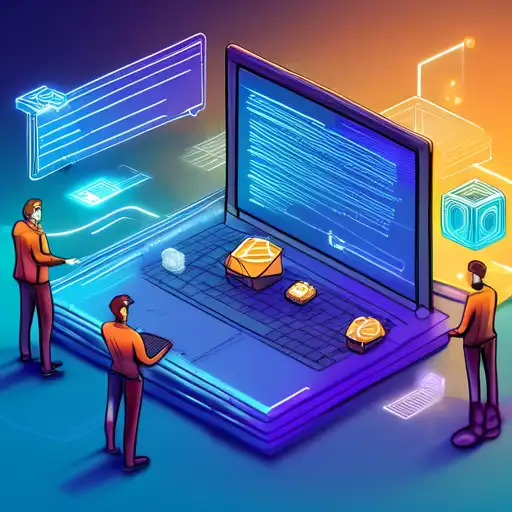Introduction to Smart Contracts
Smart contracts represent a pivotal innovation in blockchain technology, automating agreements without the need for intermediaries. These digital contracts execute transactions automatically when predetermined conditions are met, ensuring trust and efficiency in decentralized environments.
How Smart Contracts Work
At their core, smart contracts are self-executing contracts with the terms of the agreement directly written into code. They run on the blockchain, making them immutable and distributed. This means once a smart contract is deployed, it cannot be altered, and its execution is enforced by the network.
Benefits of Smart Contracts
Smart contracts offer numerous advantages, including:
- Reduction in transaction costs by eliminating intermediaries.
- Increased speed and efficiency in executing agreements.
- Enhanced security through cryptography and decentralization.
- Transparency and trust, as all parties can view the contract terms and outcomes.
Applications of Smart Contracts
Smart contracts find applications across various sectors, such as:
- Finance: Automating payments and settlements.
- Real Estate: Streamlining property sales and leases.
- Supply Chain: Enhancing transparency and tracking.
- Healthcare: Securing patient data and automating insurance claims.
Challenges and Considerations
Despite their potential, smart contracts face challenges like legal recognition, scalability issues, and the risk of bugs in code. It's crucial for developers and users to understand these limitations and work towards solutions.
Future of Smart Contracts
The future of smart contracts is promising, with ongoing advancements in blockchain technology and increasing adoption across industries. As the technology matures, we can expect more sophisticated and user-friendly smart contract platforms.
For more insights into blockchain technology, explore our Blockchain Basics guide.
Conclusion
Smart contracts are transforming how we think about agreements and transactions in the digital age. By leveraging blockchain technology, they offer a secure, efficient, and transparent way to execute contracts. As the ecosystem evolves, the potential applications and impact of smart contracts will continue to expand.
